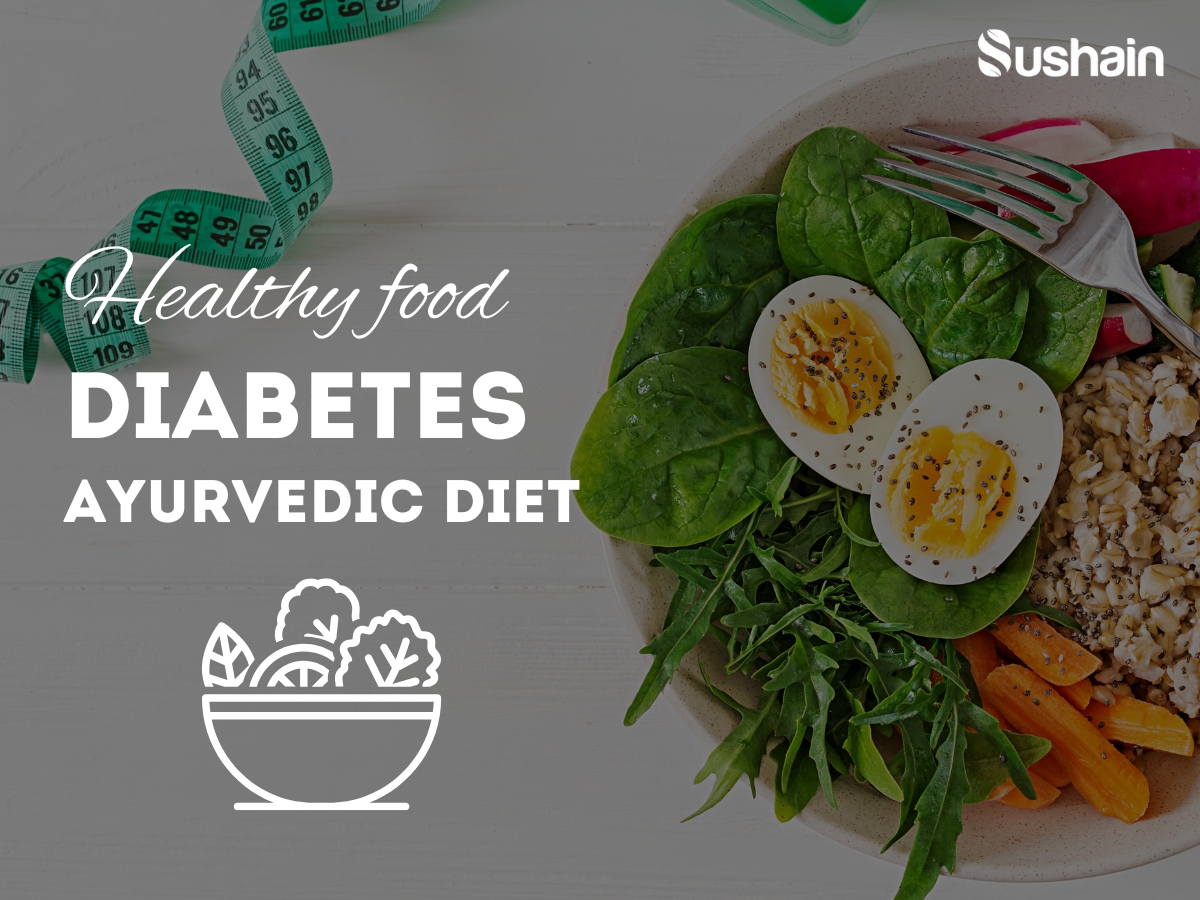Introduction to PCOS:
PCOS (polycystic ovary syndrome) is a metabolic disorder in which the woman is affected by hormonal imbalances in their reproductive years.
Ayurveda Treatment for PCOS
The lifestyle we live, the food, physical activity, water intake, and sleep play a very important role in balancing all doshas and being in healthy status. As PCOS, polycystic ovarian is one of the common hormonal imbalance health issues, that if left untreated may be a main cause of infertility and other health issues.
Every woman from the stage of menarche to menopause has to face many ups and downs in their health due to disturbances in the hormones. So, it’s very important to take care of Reproductive health in all stages of life of the woman and take polycystic ovarian symptoms and treatment. The main cause of disturbed Menstrual cycle, Infertility, and hormonal imbalance in the reproductive age is PCOS.
Ayurveda aims to treat the root cause of the condition by relieving the symptoms and treating the condition. The aim of Ayurveda with the treatment is to detoxify, normalize hormonal levels, boost the reproductive system, treat insulin resistance, and Management of weight. Panchakarma plays a very important role in treating the symptoms of PCOS and also treating conditions like Infertility, amenorrhea, and menorrhagia. Polycystic ovary syndrome treatments in Ayurveda require Panchakarma treatment depending upon the dosha dominant and symptom of the individual, Shodhana is planned.
- Vaamana
- Virechana
- Basti
- Uttar Basti
- Abhyanya
- Udhvarthana
DR Preeti Chhabra
BAMS,MD (Ayurveda) | 33 YRS. EXP.
Dr Harshita Sethi
MD (Ayurveda) | 27 YRS. EXP.
Dr Pallvi Rathee
MS (Ayurveda) | 13 YRS. EXP.
Dr Nandini Marappa
BAMS | 14 YRS. EXP.
Dr B Ranganadh Acharyulu
BAMS,MD (Ayurveda) | 26 YRS. EXP.
Dr Manju Singh
BAMS,MD(AM) | 30 YRS. EXP.
Dr Anshu sharma
BAMS,MD (Ayurveda) | 18 YRS. EXP.
Dr Sushmita Gupta
BHMS | 11 YRS. EXP.
Dr Prathmesh Vyas
BAMS,MD (Ayurveda) | 28 YRS. EXP.
Dr Pramod Kataria
BAMS,MD(AM) | 27 YRS. EXP.
Ayurveda Treatment Home Remedies for PCOS
Herbal Remedies:
- Shatavari and Ashwagandha Decoction: Boil a teaspoon each of Shatavari (Asparagus racemosus) and Ashwagandha (Withania somnifera) in water. Strain and drink the decoction once or twice a day.
- Fenugreek Seeds (Methi): Soak fenugreek seeds overnight and consume them in the morning on an empty stomach. Fenugreek may help regulate menstrual cycles.
- Cinnamon Tea: Cinnamon is believed to have insulin-sensitizing properties. Prepare a tea by boiling cinnamon sticks in water and drink it regularly.
Ayurveda Herbs for PCOS
Haridra (Turmeric):
- Properties: Turmeric is known for its anti-inflammatory and antioxidant properties.
- Potential Benefits: May help reduce inflammation and support overall reproductive health.
Shatavari:
- Properties: Considered a rejuvenating herb in Ayurveda, it is known for its cooling and nourishing properties.
- Potential Benefits: Often used to support hormonal balance, reproductive health, and menstrual irregularities.
Ashwagandha:
- Properties: Adaptogenic herb with potential stress-reducing properties.
- Potential Benefits: May help manage stress levels, support hormonal balance, and enhance overall well-being.
Pippali (Long Pepper):
- Properties: Known for its heating and digestive properties.
- Potential Benefits: Pippali is traditionally used to improve digestion and metabolism.
Shunti (Ginger):
- Properties: Warming and digestive herb.
- Potential Benefits: Ginger is believed to support digestion and metabolism.
Punarnava:
- Properties: Diuretic and anti-inflammatory properties.
- Potential Benefits: Traditionally used to reduce water retention and inflammation.
Guduchi:
- Properties: Immunomodulatory and antioxidant properties.
- Potential Benefits: May support immune function and overall health.
Ayurvedic Medicines for Gynaecology & Fertility:
KRISHNA AYURVEDA SHE CARE JUICE Bottle of 1000 ML
₹ 580
View Product
What are the Causes for PCOS?
High levels of androgens (male hormones):
- Effect: Elevated levels of androgens, such as testosterone, can disrupt the normal functioning of the ovaries and may lead to the formation of cysts.
- Consequence: This disruption can hinder the regular release of eggs during the menstrual cycle, contributing to infertility.
Thyroid imbalance:
- Effect: Irregularities in thyroid function, such as hypothyroidism or hyperthyroidism, can affect the menstrual cycle and ovulation.
- Consequence: Thyroid dysfunction may lead to irregular periods, anovulation (lack of ovulation), or other fertility-related issues.
Insulin resistance:
- Effect: Insulin is a hormone that helps regulate blood sugar levels. Insulin resistance occurs when cells do not respond effectively to insulin, leading to elevated blood sugar levels.
- Consequence: Insulin resistance is often associated with PCOS and can contribute to hormonal imbalances, disrupting the normal ovulatory process.
Obesity:
- Effect: Excess body weight, particularly abdominal fat, can contribute to insulin resistance and hormonal imbalances.
- Consequence: Obesity is a risk factor for PCOS and can exacerbate fertility issues by disrupting ovulation and menstrual regularity.
Hereditary factors:
- Effect: There is evidence suggesting a genetic component in the development of PCOS and other reproductive disorders.
- Consequence: Individuals with a family history of PCOS may be more predisposed to developing the condition themselves.
What are the Common Symptoms of PCOS?
Irregular Menstruation:
- Description: Menstrual cycles may be irregular, with variations in cycle length or the absence of periods.
- Consequence: Irregular periods may indicate ovulatory dysfunction, which can affect fertility.
Absence of Menstruation (Amenorrhea):
- Description: Some individuals with PCOS may experience prolonged periods without menstruation.
- Consequence: Amenorrhea can impact fertility and may be a sign of irregular ovulation.
Heavy Menstrual Bleeding:
- Description: Menstrual bleeding may be heavier and more prolonged than normal.
- Consequence: Heavy menstrual bleeding can lead to anemia if not managed.
Excessive Hair Growth (Hirsutism):
- Description: Increased growth of coarse and dark hair in areas where men typically grow hair, such as the face, chest, and back.
- Consequence: Hirsutism is a result of elevated androgen levels, particularly testosterone.
Acne on the Face, Chest, and Back:
- Description: Increased acne, often appearing on the face, chest, and back.
- Consequence: Acne is linked to hormonal imbalances, including elevated androgens.
Hair Loss or Thinning of Hair (Male-pattern Baldness):
- Description: Thinning of hair on the scalp, similar to male-pattern baldness.
- Consequence: This is also associated with elevated androgen levels.
Diet to be Followed
- Intake of fruits like avocado, plums, orange berries, and all the seasonal fruits.
- Intake of fresh vegetables especially leafy vegetables.
- Nuts like almonds, walnuts, raisins, and sunflower seeds.
- Having food at the proper time.
- Light and early dinner.
- Having food after the digestion of the previous meal.
- Avoid sugar, salt, beverages, smoking, and alcohol.
- Avoid dairy products and bakery food.
- Having the food at the proper time and in the proper quantity.
Yoga to Treat PCOS
Yoga is a holistic approach for boosting reproductive health, and balancing Hormones, practicing yoga continuously helps to reduce testosterone levels. Practicing yoga and pranayama builds mental strength, and relieves anxiety, and mood swing changes. Asanas indicated are-
- Surya Namaskar practices daily to improve overall health specially to treat PCOS and to balance vitiated doshas by balancing hormones.
- Bhujangaasana
- Trikonasana
- Titli asanas (butterfly pose)
- Dhanurasana
- Viparita konasana
- Marjariasana
- Halasana
So, with the support of our ancient system of medicine, diet, and lifestyle changes, yoga gets rid of symptoms and treatment of PCOS, also can relieve the systems by boosting physical and mental health by following a healthy way of life.
Latest Blogs


 Home
Home  Book Video Consultation
Book Video Consultation Buy Medicines
Buy Medicines


























